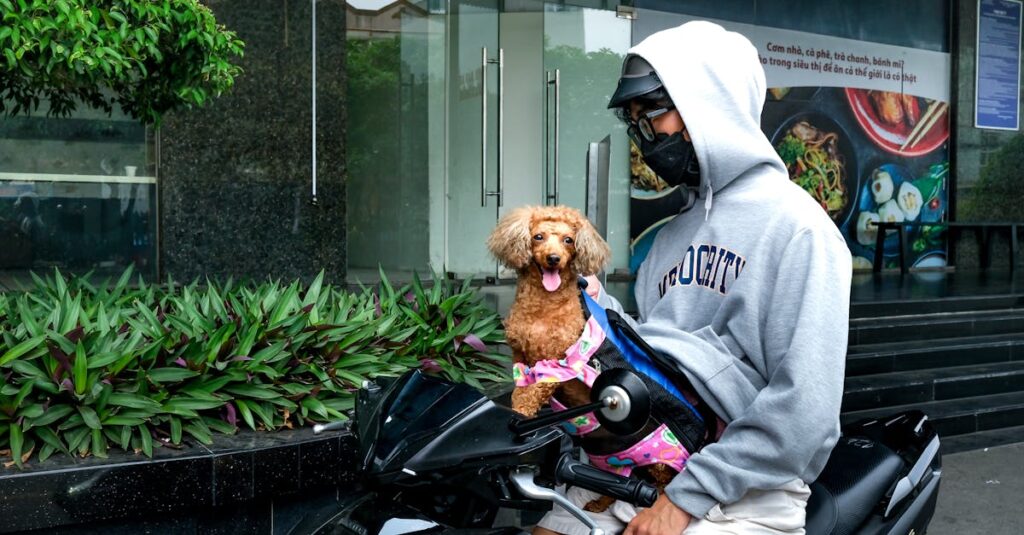As summer approaches, many people eagerly plan their getaways, dreaming of sun-soaked beaches and adventurous road trips. However, amidst the excitement, safety should remain a top priority. With increased travel comes unique challenges that can turn a fun vacation into a stressful ordeal if not properly managed.
Understanding the potential risks and knowing how to navigate them can make all the difference in ensuring a safe and enjoyable trip. From securing personal belongings to staying aware of local health guidelines, these summer travel safety tips will help travelers protect themselves and their loved ones while making unforgettable memories.
Summer Travel Safety Tips
- Remain Hydrated
Drink plenty of water throughout the day. Dehydration can lead to fatigue and heat-related illnesses. - Plan Around Weather
Check weather forecasts for destination areas. Adjust outdoor activities based on potential weather hazards, such as thunderstorms or extreme heat. - Use Sun Protection
Apply sunscreen with a minimum SPF of 30. Reapply every two hours, especially after swimming or sweating. - Stay Aware of Surroundings
Keep an eye on personal belongings and surroundings. Be cautious in crowded areas to avoid theft or accidents. - Secure Accommodations
Book accommodations with good reviews and safety features. Verify the existence of smoke detectors and secure locks. - Prepare for Emergencies
Create an emergency contact list and carry it. Include local emergency numbers and contact information for your country’s embassy. - Pack Essential Medications
Bring sufficient supplies of personal medications. Consider including a basic first aid kit for minor injuries. - Follow Local Guidelines
Respect local laws and customs while traveling. Stay updated on any travel advisories related to health and safety. - Utilize Transportation Wisely
Use reputable transportation services. When renting vehicles, inspect them for safety issues before driving away. - Keep Digital Copies of Documents
Store digital copies of important documents, including passports and travel itineraries. Utilize cloud storage for easy access during emergencies.
Preparing for Your Trip
Preparing for a trip involves careful planning and smart packing to ensure safety and convenience. Travelers can take specific steps to enhance their trip experience while minimizing risks.
Planning Your Itinerary
Planning an itinerary involves selecting destinations, activities, and accommodations with safety in mind. Identify key attractions and check their visit times to avoid crowds. Prioritize outdoor experiences during cooler hours to stay comfortable and avoid heat-related concerns. Research local emergency contacts, medical facilities, and transportation services for quick access in case of unforeseen issues. Share your itinerary with family or friends to keep them informed of your whereabouts.
Packing Smart
Packing smart ensures that essential items are readily available and minimizes the risk of being unprepared. Include a first-aid kit to address minor injuries or health issues. Pack lightweight clothing suitable for hot weather and include layers for cooler evenings. Bring sunscreen with a high SPF, hats, and sunglasses for sun protection. Ensure important documents, such as identification and travel insurance details, are stored in a waterproof pouch. Carry reusable water bottles to stay hydrated and reduce plastic consumption. By selecting versatile items, travelers can remain functional and safe in various situations.
Staying Safe While Traveling
Travelers must prioritize safety during their journeys. Understanding safety measures enhances the overall travel experience while minimizing potential risks.
Transportation Safety
Travelers must utilize safe transportation options. They should choose reputable carriers with positive reviews and check vehicle safety records. Ensuring seatbelt use minimizes injury during accidents. Monitoring belongings is essential; keep valuables secure and within sight. When using public transportation, remain aware of surroundings and avoid isolated areas, especially at night. Additionally, familiarizing with emergency exits and procedures can enhance preparedness while commuting.
Accommodations Considerations
When selecting accommodations, prioritize safety features. Travelers should book hotels or rentals with secure access points, including deadbolts or security personnel. Researching properties with positive safety ratings is crucial; read reviews and verify emergency protocols. It’s beneficial to locate nearby hospitals and emergency services upon arrival. Keeping doors locked and using hotel safes for valuables adds extra security. Travelers must also familiarize themselves with evacuation routes and procedures for their accommodations, ensuring they can act quickly in emergencies.
Health and Well-Being
Prioritizing health and well-being while traveling ensures a safe and enjoyable summer experience. Implementing strategies for hydration and sun protection is essential.
Staying Hydrated
Hydration plays a crucial role in maintaining health during summer travel. It’s vital to drink at least 8-10 cups of water daily, especially in hot climates. Travelers should carry reusable water bottles, refilling them regularly to ensure constant access to water. Consuming hydrating fruits, like watermelon and oranges, contributes to overall fluid intake. Avoid excessive alcohol and caffeinated beverages, as they can lead to dehydration. Recognizing the signs of heat-related illnesses, such as dizziness and fatigue, is essential for addressing hydration needs promptly.
Protecting Against Sun Exposure
Sun protection is vital for preventing skin damage during summer outings. Applying broad-spectrum sunscreen with an SPF of 30 or higher is a must. Travelers should reapply sunscreen every two hours, or more frequently if swimming or sweating. Wearing protective clothing, such as wide-brimmed hats and UV-blocking sunglasses, offers additional safety against harmful UV rays. Planning outdoor activities during early morning or late afternoon reduces sun exposure during peak hours. Seeking shaded areas while resting also provides protection from the sun. Recognizing symptoms of sunburn, like redness and blistering, necessitates immediate care to prevent further damage.
Emergency Preparedness
Travelers must prioritize emergency preparedness to ensure safety during summer trips. Being ready for unexpected situations minimizes stress and enhances the overall experience.
Important Contacts and Documents
Travelers should compile a list of important contacts and documents before embarking on their journey. Key items include:
- Emergency contacts: Family members, friends, and local authorities.
- Travel insurance: Policy details and contact information for the insurance provider.
- Accommodations: Contact numbers for hotels or rental properties.
- Healthcare providers: Local hospitals and clinics in the travel area.
- Transportation: Numbers for local taxis or rideshare services.
Storing this information in both digital and physical formats facilitates quick access during emergencies.
First Aid Kit Essentials
A well-stocked first aid kit is essential for summer travel safety. Important items to include are:
- Adhesive bandages: Various sizes for minor cuts and scrapes.
- Antiseptic wipes: For cleaning wounds and reducing infection risk.
- Gauze pads and tape: For dressing larger injuries.
- Pain relievers: Over-the-counter medications, including ibuprofen or acetaminophen.
- Allergy medication: Antihistamines for allergic reactions.
- Insect repellent: To prevent bites and stings.
- Thermometer: For monitoring fever.
- Hydrocortisone cream: To alleviate itching and inflammation from bites or rashes.
Regularly checking and replenishing the kit ensures all items remain effective and ready for use.
Unforgettable Experiences
Prioritizing safety during summer travels is essential for creating unforgettable experiences. By staying hydrated planning activities wisely and being aware of surroundings travelers can significantly reduce risks. Smart packing and preparing for emergencies further enhance safety and peace of mind.
Choosing reputable transportation and accommodations with safety features ensures a secure environment. Emphasizing health and well-being through sun protection and proper hydration is vital for enjoying every moment.
With these tips in mind travelers can embark on their summer adventures confidently knowing they’re equipped to handle potential challenges. Enjoy the journey while making lasting memories with loved ones.



